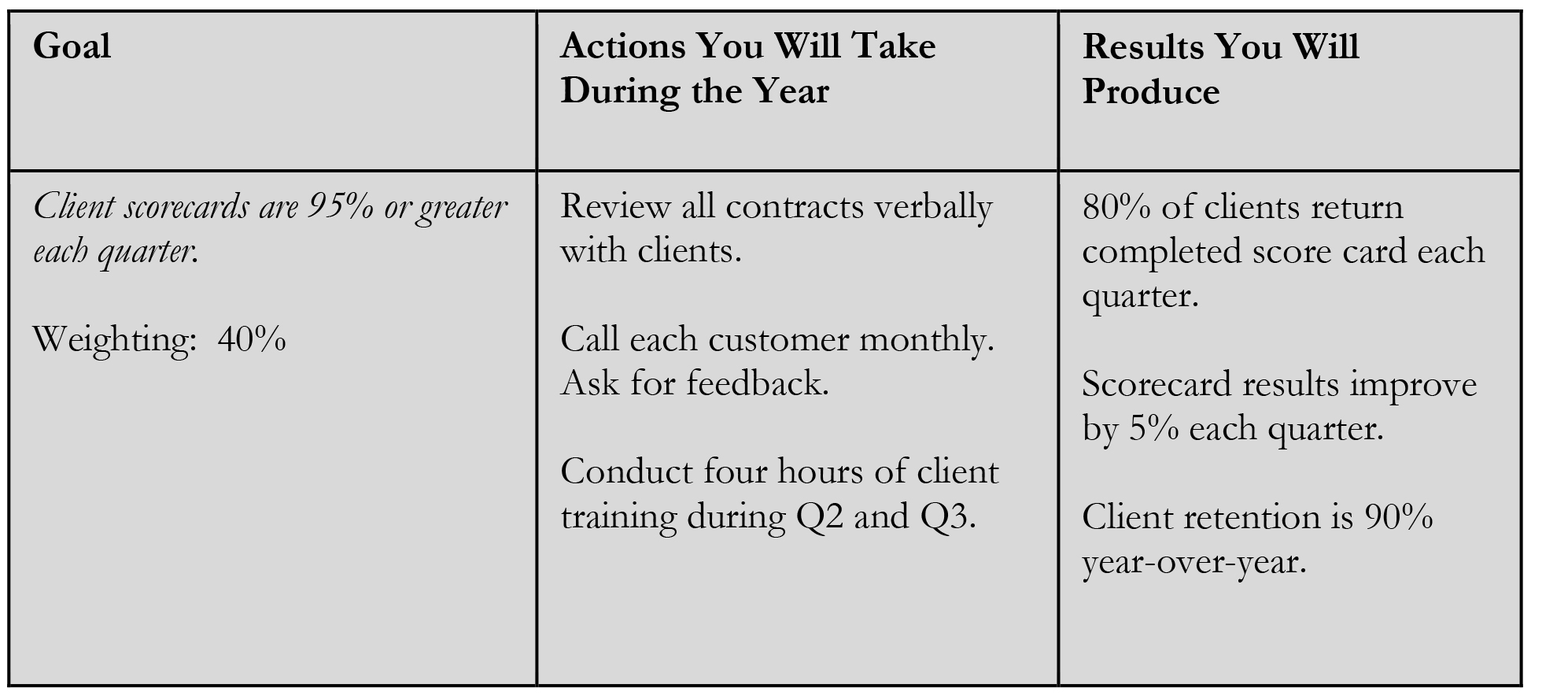Posts Tagged ‘goal setting’
I always try to do the right thing. I try to remember and send cards for special occasions. Apologize for mistakes, or better yet, don’t make any. Listen more than I talk. Be a great boss. Keep in touch with friends near and far. Always take the high road. Never lose my temper or patience. Eat healthy. Get fewer parking tickets. I could go on and on and on. In short, I want to be perfect. And I’m annoyed that I’m not.
Lately I’ve begun to realize that my desire to be perfect is causing me stress, diminishing my happiness, and preventing me from pursuing things I really want. So here’s to overcoming per fectionism. I hope the steps here help all of us who are frustrated that we’re not perfect.
fectionism. I hope the steps here help all of us who are frustrated that we’re not perfect.
Overcoming perfectionism tip number one: When you make a choice, go with it. Don’t second guess yourself.
If you decide to skip a party, networking event, or class at the gym, you have a good reason. Don’t question yourself or say, “I should have.”
Overcoming perfectionism tip number two: Stop thinking that life has to look a certain way.
Maybe you’re in a job that doesn’t challenge you 100%, or you wish you were saving more money. Be careful not to buy into others’ views of how life should be lived. You’re living your life in the way it works for you.
Overcoming perfectionism tip number three: Don’t compare yourself to others.
Comparing ourselves to other people is normal and natural, and it’s the booby prize. There will also be people who are more successful, more fit, and more attractive than us. Those seemingly perfect folks have challenges and disappointments we will never know about.
Overcoming perfectionism tip number four: If you make a mistake, apologize once and move on.
I often feel badly for ‘mistakes’ long after they’re over. The other person is likely to have forgotten about the incident long after I’m still feeling guilty.
Overcoming perfectionism tip number five: Worry less what people think.
Human beings are wired for survival. Most people are so worried about themselves; they’re not preoccupied with you. So do your thing and assume the rest of the world is not watching.
Overcoming perfectionism tip number six: Try new things and be willing to make mistakes.
We won’t have anything different if we don’t do anything different. Learn a new skill, try a new way to solve a problem, and be willing to look silly and fail.
I’m hoping the tips above provide both me and my striving-to-be-perfect comrades some freedom. By suggesting you live your desired life, I’m not saying ignore responsibilities, be rude, or put yourself first all the time. I am saying that living life the way you think it should be lived, versus how you really want to live it, will diminish your personal happiness and satisfaction. And as far as we know, we only go around once.
When I landed my first ‘real’ job after graduating from college I was so scared, I almost turned  the job down. It took me five years to finish my first book, How to Say Anything to Anyone, in part because I was afraid no one would like it.
the job down. It took me five years to finish my first book, How to Say Anything to Anyone, in part because I was afraid no one would like it.
It seems anything worth doing is worth fearing.
I’m not talking about taking risks for the sake of risk – driving as fast as your car can take you, not paying your bills to see what will happen, or offering a counter point of view at work for the sake of doing so. I’m talking about pursuing the things you really want, that speak to your true purpose.
Being afraid doesn’t mean you can’t do something, nor does it mean that you shouldn’t. Feeling some fear just means what you want is outside of what you know you can do. But it’s the edge and the unknown that is juicy and rich.
During the past few years I’ve pursued things I’m terrified of, that I don’t know I can do. Yet I want these things, so I pursue them in the face of fear. And I have to admit, that as I get closer to getting what I want, the fear doesn’t dissipate, it actually gets worse. As I can almost taste having what I want, I get more scared. And sometimes I pull back, thinking, maybe I don’t really won’t those things. Maybe I was wrong. Then I remember why I want what I want and step back into the pursuit, despite the fear.
Don’t misinterpret fear as a reason not to do something.
A few suggestions for how to face your fears at work:
1. Write your desires down and/or tell people what you want.
- You’re more likely to get what you talk about wanting.
2. Take one step towards having what you want.
- Talk to someone who either has what you want or can help you get what you want.
3. Put yourself in the place of most potential, where you can get what you want.
- If you want to work in a certain department, express interest in working on a project that serves that department.
- Tell your boss and people in leadership in your desired work area of your interest.
- Apply for a job in that area.
4. Be positive and persistent.
- No one wants to give a complainer an opportunity, and it takes time to make a shift.
The key is to take one step, then another, then another. And when you feel fear, don’t let it stop you. Fearing the next job or opportunity doesn’t mean you can’t do it well, it just means you haven’t done it yet.
When you need encouragement to face your fears, hang our inspiring magnets at your desk. You have to believe in yourself just as much as the people around you believe in you.

 When I was leading Leadership Development for OppenheimerFunds I told my boss, the head of HR, that one of my career goals was to be an HR generalist. He said, in his lovely British accent, “Shari, you’re very good at what you do, and you would be a terrible generalist. You will never be a generalist here.” At the next company, I also told the head of HR that one of my career goals was to be an HR generalist, and he too said, “You would be a terrible generalist. You won’t have that role here.” I could have left that company and chased my desire to be a generalist, or I could have listened to people who saw something I didn’t. I listened.
When I was leading Leadership Development for OppenheimerFunds I told my boss, the head of HR, that one of my career goals was to be an HR generalist. He said, in his lovely British accent, “Shari, you’re very good at what you do, and you would be a terrible generalist. You will never be a generalist here.” At the next company, I also told the head of HR that one of my career goals was to be an HR generalist, and he too said, “You would be a terrible generalist. You won’t have that role here.” I could have left that company and chased my desire to be a generalist, or I could have listened to people who saw something I didn’t. I listened.
Sometimes others can see things we can’t and it makes sense to listen. That’s actually my definition of a coach – someone who can see things that we can’t, and they’re willing to tell us.
If you’re serious about achieving your career goals, consider these six practices:
- Identify what you want to do.
- Share your career goals with people who can help you achieve them.
- Ask people you trust and those in a position to help you achieve your career goals what may prevent you from having what you want. Obstacles might be organizational (i.e. the job you want doesn’t exist at your company) or they might be personal (i.e. you don’t have the skills, acumen, or temperament for the job you want).
- Work to develop skills you’re missing.
- Accept things that might prevent you from getting what you want. I.e. I don’t have the temperament to be an effective HR generalist, and I never will.
- Decide when to stop pursuing a goal. Make peace with that decision. And move on to something equally, if not, more compelling.
Most of us were raised to believe that quitting is taking the easy way out and that to quit is bad. I don’t know about that. Sometimes you have to listen to the feedback the world gives you and act accordingly.

Posted under
Uncategorized on December 27, 2015 by Shari Harley. Comments
 I always want to do things right and hate making mistakes. When I say or do things I wish I hadn’t done, I relive those scenarios way more than I care to admit, also known as obsessing. But maybe life isn’t about doing everything right. What if our primary job in life is to be happy?
I always want to do things right and hate making mistakes. When I say or do things I wish I hadn’t done, I relive those scenarios way more than I care to admit, also known as obsessing. But maybe life isn’t about doing everything right. What if our primary job in life is to be happy?
I’m not making a list of 2016 personal goals, although I don’t think doing so is bad. Lots of people will set 2016 goals. If setting specific goals works for you, do it. Just don’t set yourself up to fail. You’re not likely to lose 30 pounds, save 20% of your income, start a not-for-profit, visit five new countries, and become a fantastic cook in one year. Maybe dial those 2016 goals back and pick two of them, but only if you enjoy working towards those goals.
Perhaps life isn’t about getting more done. Perhaps life is really about enjoying more.
If you want to set 2016 goals, I wouldn’t be opposed if they are:
- Have a job you love.
- Spend time with people who make you feel good.
- Speak your truth (nicely).
2016 Goal: Have a job you love. You don’t need to keep a job that doesn’t allow you to do work you enjoy and are good at. There are lots of jobs out there. Go get one you like.
2016 Goal: Spend time with people who make you feel good. Stop spending time with people you don’t like or who you don’t feel better after leaving their presence. Your discretionary time is limited. “I should maintain this friendship because we’ve known each other so long.” Or, “I should spend time with family members I don’t enjoy because it’s the right thing to do” is diminishing your happiness. Text those people occasionally and spend your time elsewhere.
2016 Goal: Speak your truth (nicely). People are more likely to quit a job and a relationship than to say what isn’t working and to ask for what they want. Fear less; speak more. When you speak from a desire to make things better and to strengthen relationships, there is little you can’t say, so start talking.
I won’t tell you not to save money, travel more, or become a gourmet cook. But what if your job in 2016 isn’t to do more? What if your primary job is to be happy? What would your 2016 goals be then?
 It’s the time of year when people start to evaluate the last year and plan for the next. As I do my own planning, I watch myself repeatedly doing things that will never allow me to reach my personal and professional goals.
It’s the time of year when people start to evaluate the last year and plan for the next. As I do my own planning, I watch myself repeatedly doing things that will never allow me to reach my personal and professional goals.
I want to get more sleep, but I lie in bed playing with my iphone long after I should be asleep. I want to be in better shape, but I find every reason not to work out. I want to do more local work, but I don’t pursue work in Denver. Who in Colorado wants to hire me to speak or do some training? Ok, back on track.
To have something different, we need to do something different, and that often means giving something up. Letting go of a habit or pattern is challenging. There’s a reason we do what we do. Our habits provide something – comfort, distraction, fun, etc. If you’ve ever done a ropes course or graduated to a more challenging ski run, you know you need to let go of what feels secure to get to the next level. And letting go can be scary and difficult. But if we don’t let go, we get stuck where we are.
Make a list of things you want that you don’t have now. Perhaps you want to:
- Learn a new skill or take on a new responsibility at work
- Buy a house
- Save more money
- Be in better shape
- Pursue a hobby
Then I’d ask, what do you need to give up (aka stop doing) to have what you want?
You need to do something differently, or you would already have what you want. Doing something differently could be as simple as telling someone who can help you get what you want. We often tell our coworkers and friends what we need to be happy in our job, but we don’t always tell the people who can help us get what we want.
If you want a different job, tell someone in your organization who can help you get what you want. Then create a plan with actions you’ll take, milestones, dates, and measurable outcomes, and follow up until you attain your goal.
Lastly, accept when you can’t get what you want from a person or organization, grieve, and then make a big change. If you have consistently pursued a role in your organization and in two or three years haven’t moved toward that goal, chances are you won’t get that job at that company. It’s likely you need to leave.
Choosing to leave is often the most difficult decision to make. We work and work on a relationship or situation, and eventually realize, we will never get what we want. That’s a very hard pill to swallow. But if you’re certain you won’t get what you want, despite your efforts, move on.
Five Steps to Reaching Your Goals – Ask Yourself:
Reaching your goals #1: What do I want that I don’t have now?
Reaching your goals #2: What do I need to give up in order to have what I want?
Reaching your goals #3: Have I made a request of the person/people who can help me get what I want?
Reaching your goals #4: Can the person/people I’ve asked for help assist me, and do they want to do so?
Reaching your goals #5: With persistence and consistency, can I get what I want from this situation, or is it time to move on?
Keys to reaching your goals: Determine what you want; tell someone who can help you get what you want; be consistent and persistent, and be ready to make changes. To have something different, we have to do something different.
Add a comment to the blog about what you’re giving up or doing differently to create the life you want, and we’ll enter you to win a free copy of my book, How to Say Anything to Anyone. And if you already have the book, you can pick a box of Candor Questions of your choosing.

I always try to do the right thing. I try to remember and send cards for special occasions. Apologize for mistakes, or better yet, don’t make any. Listen more than I talk. Be a great boss. Keep in touch with friends near and far. Always take the high road. Never lose my temper or patience. Eat healthy. Get fewer parking tickets. I could go on and on and on. In short, I want to be perfect. And I’m annoyed that I’m not.
Lately I’ve begun to realize that my desire to be perfect is causing me stress, diminishing my happiness, and preventing me from pursuing things I really want. So here’s to overcoming perfectionism. I hope the steps here help all of us who are frustrated that we’re not perfect.
Overcoming perfectionism tip number one: When you make a choice, go with it. Don’t second guess yourself.
If you decide to skip a party, networking event, or class at the gym, you have a good reason. Don’t question yourself or say, “I should have.”
Overcoming perfectionism tip number two: Stop thinking that life has to look a certain way.
Maybe you’re in a job that doesn’t challenge you 100%, or you wish you were saving more money. Be careful not to buy into others’ views of how life should be lived. You’re living your life in the way it works for you.
Overcoming perfectionism tip number three: Don’t compare yourself to others.
Comparing ourselves to other people is normal and natural, and it’s the booby prize. There will also be people who are more successful, more fit, and more attractive than us. Those seemingly perfect folks have challenges and disappointments we will never know about.
Overcoming perfectionism tip number four: If you make a mistake, apologize once and move on.
I often feel badly for ‘mistakes’ long after they’re over. The other person is likely to have forgotten about the incident long after I’m still feeling guilty.
Overcoming perfectionism tip number five: Worry less what people think.
Human beings are wired for survival. Most people are so worried about themselves; they’re not preoccupied with you. So do your thing and assume the rest of the world is not watching.
Overcoming perfectionism tip number six: Try new things and be willing to make mistakes.
We won’t have anything different if we don’t do anything different. Learn a new skill, try a new way to solve a problem, and be willing to look silly and fail.
I’m hoping the tips above provide both me and my striving-to-be-perfect comrades some freedom. By suggesting you live your desired life, I’m not saying ignore responsibilities, be rude, or put yourself first all the time. I am saying that living life the way you think it should be lived, versus how you really want to live it, will diminish your personal happiness and satisfaction. And as far as we know, we only go around once.
 When I landed my first ‘real’ job after graduating from college I was so scared, I almost turned the job down. It took me five years to finish my first book, How to Say Anything to Anyone, in part because I was afraid no one would like it.
When I landed my first ‘real’ job after graduating from college I was so scared, I almost turned the job down. It took me five years to finish my first book, How to Say Anything to Anyone, in part because I was afraid no one would like it.
It seems anything worth doing is worth fearing.
I’m not talking about taking risks for the sake of risk –driving as fast as your car can take you, not paying your bills to see what will happen, or offering a counter point of view at work for the sake of doing so. I’m talking about pursuing the things you really want, that speak to your true purpose.
Being afraid doesn’t mean you can’t do something, nor does it mean that you shouldn’t. Feeling some fear just means what you want is outside of what you know you can do. But it’s the edge and the unknown that is juicy and rich.
During the past two years I’ve been pursuing things I’m terrified of, that I don’t know I can do. Yet I want these things, so I pursue them in the face of fear. And I have to admit, that as I get closer to getting what I want, the fear doesn’t dissipate, it actually gets worse . As I can almost taste having what I want, I get more scared. And sometimes I pull back, thinking, maybe I don’t really won’t those things. Maybe I was wrong. Then I remember why I want what I want and step back into the pursuit, despite the fear.
Don’t misinterpret fear as a reason not to do something.
A few suggestions for how to face your fears at work:
1. Write your desires down and/or tell people what you want.
- You’re more likely to get what you talk about having.
2. Take one step towards having what you want.
- Talk to someone who either has what you want or can help you get what you want.
3. Put yourself in the place of most potential, where you can get what you want.
- If you want to work in a certain department, express interest in working on a project that serves that department.
- Tell your boss and people in leadership in your desired work area of your interest.
- Apply for a job in that area.
4. Be positive and persistent.
- No one wants to give a complainer an opportunity, and takes time to make a shift.
The key is to take one step, then another, then another. And when you feel fear, don’t let it stop you. Fearing the next job or opportunity doesn’t mean you can’t do it well, it just means you haven’t done it yet.
When you need encouragement to face your fears, hang our inspiring magnets at your desk. You have to believe in yourself just as much as the people around you believe in you.

 Many year-end performance reviews include whatever the manager and direct report can remember happening during the last six to twelve weeks of the year. For the most part, managers and direct reports sit in front of blank performance appraisals and self-appraisal forms and try to remember everything that happened during the year. The result: A vague, incomplete performance review that leaves employees feeling disappointed, if not discounted.
Many year-end performance reviews include whatever the manager and direct report can remember happening during the last six to twelve weeks of the year. For the most part, managers and direct reports sit in front of blank performance appraisals and self-appraisal forms and try to remember everything that happened during the year. The result: A vague, incomplete performance review that leaves employees feeling disappointed, if not discounted.
If you were disappointed by your performance review this year, don’t let it happen again next year. Take charge of your career by writing your own goals.
One of the first companies I worked for did the goal process so well, I learned early in my career how powerful well written goals could be. Each employee set five to seven goals. Experienced employees wrote their own goals and then discussed those goals with their manager. Less experienced employees wrote their goals with their manager. Managers wrote goals for inexperienced employees. The goals were so specific and clear that there could be no debate at the end of the year whether or not the goal had been achieved. It was obvious. Either employees had done what they said they would, or they hadn’t. This made writing performance appraisals very easy. Very little on the appraisal was subjective. And this gave employees a feeling of control over their year and performance.
It’s great if you work for an organization or manager who works with you to write goals. If you don’t, write your own goals and present them to your manager for discussion and approval. Managers will be impressed you took the initiative to write goals and will be thankful for the work it takes off of them.
Goals should be simple and clear. It must be obvious whether you achieved the goal or not. There should be little if any room for debate.
Sample goals are below.
Desired Outcome (goal):
• Improve client feedback – too vague
• Get better written reviews from clients – better
• 80% of clients respond to surveys and respond with an average rating of 4.5 or above – best
Actions you will take to achieve the goal:
• Ask clients for feedback throughout project — too vague
• Ask clients for feedback weekly – better
• Visit client site weekly. Talk with site manager. Ask for feedback — best
Goal template:

Completed sample goal:

How to approach your manager with written goals:
Try using this language with your manager: “I want to be sure I’m working on the things that are most important to you and the organization. I’ve written some goals for 2014 to ensure I’m focused on the right things. Can we review the goals, and I’ll edit them based on your input? And what do you think of using the agreed-upon goals to measure my performance in 2014?
You have nothing to lose by writing goals and presenting them to your manager. You will gain respect from your manager, clarity of your 2014 priorities, and more control of your year-end performance review. Give it a try, and let me know how it goes.
If you want more feedback from your manager, ask these questions.

If I hear this one more time I might lose it.
Manager: “One of my employees has been making a lot of mistakes. He seems disengaged. I’m not sure what’s happening.”
Me: “Have you talked to him?”
Manager: “No. Performance appraisals are coming up, so I’ll just wait to give the feedback until then.”
Me: “When are performance appraisals?”
Manager: “In six weeks.”
Most people hoard feedback. We wait for the right time, aka when we’re comfortable. That time will never come. The right time to give feedback is when something happens or shortly thereafter. Practice the 24-hour rule and the one-week guideline. Give feedback when you’re not upset, but soon after the event occurs, so people remember what you’re talking about.
Most employees feel as if they’re treated unfairly during some portion of a performance appraisal. Employees receive feedback they’ve not previously heard, or receive feedback that is unbalanced – overly positive or negative, or the feedback is so vague employees aren’t sure what to do more, better or differently.
Good performance appraisals are a quick summary of all the performance conversations you’ve had during the year and planning for next year. To have an appraisal meeting like this one, managers need to meet with their employees regularly and give feedback every time you meet. And that is the management BEST suggestion I can make.
Meet regularly with your employees. If you never meet one-on-one with employees, start meeting monthly. If you meet monthly, meet twice a month. If you meet twice a month, consider meeting weekly for 30 minutes.
The one-on-one meeting agenda, which the employee owns:
- What is the employee working on that’s going well?
- What is the employee working on that is not going great, but she doesn’t want your help?
- What is the employee working on this isn’t going great and she wants your help?
- Give each other feedback: What went well since you last met? What could be improved?
** Give and receive feedback on the work and on your relationship. This will be hard the first few times you do it, but will become easier with each successive conversation.
Ask your employee to create a meeting agenda. Take notes on the agenda and keep your notes. The summary of these meetings becomes your annual performance appraisal.
Regardless of whether or not you’re meeting regularly, throughout the year and have performance notes, you can only give small pieces of feedback during the appraisal meeting. Discuss three SPECIFIC things the employee did well during the year and three things she should do next year. People can’t focus on more.
Think about the New Year’s resolutions you may have made last January. You might have promised yourself you’d save ten percent of your income, lose twenty pounds, take a two-week vacation without your phone, and apply to attend graduate school. How many of those things did you do? Setting too many aggressive goals sets us up to fail. And performance appraisals are not different.
Consider how each of your employees must impact your department and your organization’s annual goals. In that context, determine the most important things each employee did to contribute to those goals this past year and what she should have done more, better or differently? That’s your appraisal. Not more and not less.
During performance appraisals, force yourself to focus on and present ONLY the most important behaviors and outcomes, and your employees will bring the same focus to the ensuing year.

 It’s hard to come back to work after a long weekend, no matter how much you like your job. As fun and fulfilling as work can be, we all struggle with back to work blues from time to time.
It’s hard to come back to work after a long weekend, no matter how much you like your job. As fun and fulfilling as work can be, we all struggle with back to work blues from time to time.
If you’re having a hard time getting back into it today, here are a few things to try:
- Be realistic about how much you’re going to do today. Move a few things on today’s to-do list to tomorrow, or maybe Wednesday. Setting unrealistic goals sets people up for frustration and feelings of failure.
- Pick one or two things you’re going to do today, and finish those two things.
- Do one thing at a time. Not five.
Stress occurs when we’re thinking about the past or the future. When we’re in the moment, there is nothing to stress about. You’re focused on what you’re doing, nothing else. This is easier said than done, which is why I do yoga. If I’m thinking about anything but the teacher’s instructions, I fall over.
- Plan something fun. When is your next vacation? What are you looking forward to? Having something fun and exciting on the horizon is motivating and keeps us going.
- If you’re not having fun at work or you’re feeling stuck, tell someone who can do something about it. Most people are so afraid of being fired, they don’t speak up at work. From my experience it’s not so easy to get fired. Look around. I suspect there are several people you work with who you think deserve to be fired, yet there they are. Worry less. Speak up more. No organization is going to fire you for wanting and being willing and able to do more.
If after all of these BRILLIANT suggestions you still find yourself in the back to work blues, gossip about a few people who haven’t made it in yet today, eat someone else’s lunch from the refrigerator that looks better than what you brought, and re-arrange the most organized person’s desk. And all will be well.
Advance your career and manage people with our top three sellers.



 fectionism. I hope the steps here help all of us who are frustrated that we’re not perfect.
fectionism. I hope the steps here help all of us who are frustrated that we’re not perfect.

 the job down. It took me five years to finish my first book,
the job down. It took me five years to finish my first book, 
 When I was leading Leadership Development for OppenheimerFunds I told my boss, the head of HR, that one of my career goals was to be an HR generalist. He said, in his lovely British accent, “Shari, you’re very good at what you do, and you would be a terrible generalist. You will never be a generalist here.” At the next company, I also told the head of HR that one of my career goals was to be an HR generalist, and he too said, “You would be a terrible generalist. You won’t have that role here.” I could have left that company and chased my desire to be a generalist, or I could have listened to people who saw something I didn’t. I listened.
When I was leading Leadership Development for OppenheimerFunds I told my boss, the head of HR, that one of my career goals was to be an HR generalist. He said, in his lovely British accent, “Shari, you’re very good at what you do, and you would be a terrible generalist. You will never be a generalist here.” At the next company, I also told the head of HR that one of my career goals was to be an HR generalist, and he too said, “You would be a terrible generalist. You won’t have that role here.” I could have left that company and chased my desire to be a generalist, or I could have listened to people who saw something I didn’t. I listened.
 I always want to do things right and hate making mistakes. When I say or do things I wish I hadn’t done, I relive those scenarios way more than I care to admit, also known as obsessing. But maybe life isn’t about doing everything right. What if our primary job in life is to be happy?
I always want to do things right and hate making mistakes. When I say or do things I wish I hadn’t done, I relive those scenarios way more than I care to admit, also known as obsessing. But maybe life isn’t about doing everything right. What if our primary job in life is to be happy? It’s the time of year when people start to evaluate the last year and plan for the next. As I do my own planning, I watch myself repeatedly doing things that will never allow me to reach my personal and professional goals.
It’s the time of year when people start to evaluate the last year and plan for the next. As I do my own planning, I watch myself repeatedly doing things that will never allow me to reach my personal and professional goals.
 Many
Many 




 It’s hard to come back to work after a long weekend, no matter how much you like your job. As fun and fulfilling as work can be, we all struggle with back to work blues from time to time.
It’s hard to come back to work after a long weekend, no matter how much you like your job. As fun and fulfilling as work can be, we all struggle with back to work blues from time to time.


